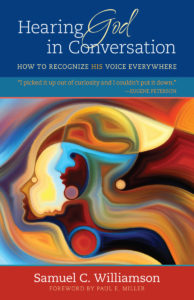I had a high school friend whose life overflowed with compassion. The rest of us were obsessed with college-prep, extra-curricular activities, and jobs. But he, like a lion, could sniff out a wounded schoolmate from a thousand yards. And like a lamb, he sat with them in their grief.
One day we heard a lecture on handling pain. Most of the class was indifferent—bored even—but my friend listened quietly with fixed attention. My preppy class asked how to deal with a poor score on a college-entry exam; my friend wondered how he could cheer a suicidal sibling.
My friend suffered from cerebral palsy. Everyday his infirmity slapped him in the face, and every night throbbing muscles threatened his sleep.
His walk was awkward, his dialog at times incomprehensible, his body wracked with pain; while his mind remained sharp. But mid-day waiters asked me what “he” wanted for lunch; classmates overlooked him for team sports; and the difficulty of his spastic speech meant few people invited him for an evening dinner. Yet he always sought out others in sorrow.
Oswald Chambers observed that, “Suffering burns up a lot of shallowness in a person.”
Why do we resent it?
We all know a few of our “foibles”: we are easily offended when corrected, we talk more than we listen, we barely know how to spell “joy” (much less live it), and past conversations consume us: “If only I had said ‘X’ instead of ‘Y.’”
We wrestle with our anxiety, condescension, and insensitivity. And they pin us to the mat. We chase self-improvement mostly to avoid the humiliation of looking stupid, uncaring, and high-maintenance. Failures drive us to avoid more sorrow at any cost.
We want healing from suffering; but Scripture says we get healing only through suffering.
God uses sorrows as spiritual chemotherapy, poisoning cancerous cells so that healthy cells can thrive. “He delivers the afflicted by their affliction and opens their ear by adversity” (Job 36:15).
We avoid passages like that.
To live a dying life
Jesus is called a man of sorrows, and to follow him is a walk of sorrows. Through them, we meet God. The way of Jesus is the road to Calvary, planting daily our crosses, as little by little the cancerous cells perish, and as little by little his life in us takes root. In our sorrows, we begin to discover true joy.
The way of Jesus is to live a dying life.
Each new sunrise screams of brutalities, ethnic cleansing, sexual carnage, heartbreaking divorce, rejection, and loneliness. What kind of God do we want? A God indifferent to suffering, exempt and untouched? Or a God so moved with compassion at the slaughter of his people that he enters creation to absorb into himself the anguish of a heartbroken world?
God’s voice in our affliction
Our experiences of loneliness and pain leave us feeling barren and empty, joyless and wasted; but it is precisely in times of wounded-ness that God speaks to us:
The other gods were strong; but Thou wast weak;
They rode, but Thou didst stumble to a throne;
But to our wounds only God’s wounds can speak,
And not a god has wounds, but Thou alone. (Edward Shillito)
Rather than flee agonies, let’s seek his voice in the heartbreaks of our sorrows; if we are rejected, hear him whisper that he was discarded so we can be cherished; in our loneliness, hear his pledge that he was forgotten so we will be treasured; in the aches of our withering bodies, hear his shout that we are nearly home.
The same sun that hardens clay also softens wax. Which will we be? Will the sufferings of life turn us callous and harsh, or will we let the blood-soaked lashes of Jesus speak to our wounds?
Like my high school friend, let us stumble awkwardly into a world of anguish, anointing the griefs of others with the balm of a wounded God. Let us live a dying life.
Sam
++++++++++++
There is nothing we humans long for more than to hear God. Please consider buying my new book, Hearing God in Conversation: How to Recognize His Voice Everywhere; it has all I’ve ever learned about recognizing God’s voice. It will be released in mid-July by Kregel Publications.
I believe it will help you begin to hear God in a new conversational relationship.
Please consider pre-ordering the book now by  clicking on one of these links or on the book cover.
clicking on one of these links or on the book cover.
Topics include:
- Learning to recognize the sound of God’s voice
- Hearing God in his silence
- How to Brainstorm with God
- Hearing God in Scripture
- Hearing God for guidance
Wayne Jacobson, pastor and author of He Loves Me and Finding Church, said this:
If you want to grow in your ability to recognize how God makes himself known to you, I can’t recommend a better guide than Sam Williamson’s Hearing God in Conversation.


 Hearing God to See Him
Hearing God to See Him
This is definitely a powerful post with a lot of prose and imagery. Just preached on this topic Sunday and shared some very personal experiences –
“God uses sorrows as spiritual chemotherapy, poisoning cancerous cells so that healthy cells can thrive. “He delivers the afflicted by their affliction and opens their ear by adversity” (Job 36:15)” – Powerful point and verse – connects with Ezekiel 14:1-5 which was the passage I preached from on Sunday. Our greatest affliction is that we do not believe that God loves us, not really and as a result we make idols. So, in order to remove the idols from our lives and our focus he must use chemotherapy which is not a painless process, in fact incredibly violent to the body. Often we speak of suffering it is only surface or the focus is on what is happening or what he is doing to us, but he is doing something far deeper and that is where the real transformation and redemption work occurs as he lays hold of our heart and arouses affections for Him, instead of our idols, which only occurs through suffering.
Great post thanks my friend
Hi Pat,
Thanks for commenting. The Ez. 14:1-5 is a great passage. I love the conviction of its closing verses: “I the Lord will answer him as he comes with the multitude of his idols, that I may lay hold of the hearts of the house of Israel, who are all estranged from me through their idols.”
Even in our idolatry, God wants to “lay hold of our hearts” … that we turn away from our idols.
And usually the way he lays hold of our hearts: is he lets us see (and feel) the emptiness of the things we cling to apart from God.
Thanks
As Amy Carmichael wrote ‘Can thou have followed far, who has no wound, who has no scar’? The Spirit of God inspired this article Sam because there is only one road and it leads to Calvary. It reminds me of a book by Tozer ‘The World: Batteground or Playground’ where he exposes the insidious false ‘gospel’ of contemporary ‘Christianity’ where there is no Cross. Thank you Sam as my brother in Christ Jesus our Strong and Glorious One who lifts our head amidst the ash heap of our brokenness and makes us princes with God as we wrestle in our own ‘River Jabbok’ and give thanks for the ‘limp’ he bestows. The ‘limp’ of our pain gives us feet like a deer able to lean into that which threatens to destroy us and walk through the Valley of Baca (weeping) and like your special schoolfriend offer empathy and comfort. As that exquisitely powerful poem says ‘To our wounds only God’s wounds can speak. Crux sola est nostra theologia (The Cross Alone is our theology) In Christ Jesus. Nigel
Hi Nigel,
You gave me two great quotes, Amy Carmichael’s and just the title of Tozer’s book (that I haven’t read).
Why do we keep forgetting that, The Cross Alone is our theology?
Thanks
Sam: great post. It is a reminder to me that I often seek God’s complex answer to complicated situations when He may simply be saying, “Do the thing right in front of you. Bear one another’s burdens.” Most men lead lives of quiet desperation and in our rush to get on with life, we often miss just being fully present and tuned into other’s needs. A simple smile and a kind word may be the only reason you crossed paths with that person today. Thanks, Sam.
Chris,
that is a GREAT extension of the article. I never thought of it that way. But yes, the person in front of us is most likely God’s direction for this next moment.
Thanks
“They haven’t suffered. What could they know?”
Came from somewhere, and I couldn’t find it when I searched.
I hadn’t heard that quote, but I love it.
It’s one of the reasons I like speakers who talk out of their struggles more than out of their successes. I know they’ve been where I’ve been, or where I’m at.
“How to Live a Dying Life” – LOVE it.
This was outstanding, Sam. Thanks so much for presenting this amazing truth in such a beautiful way.
“The same sun hat hardens clay softens wax.” I love that! I choose to be the wax. xoxo. love, Elin